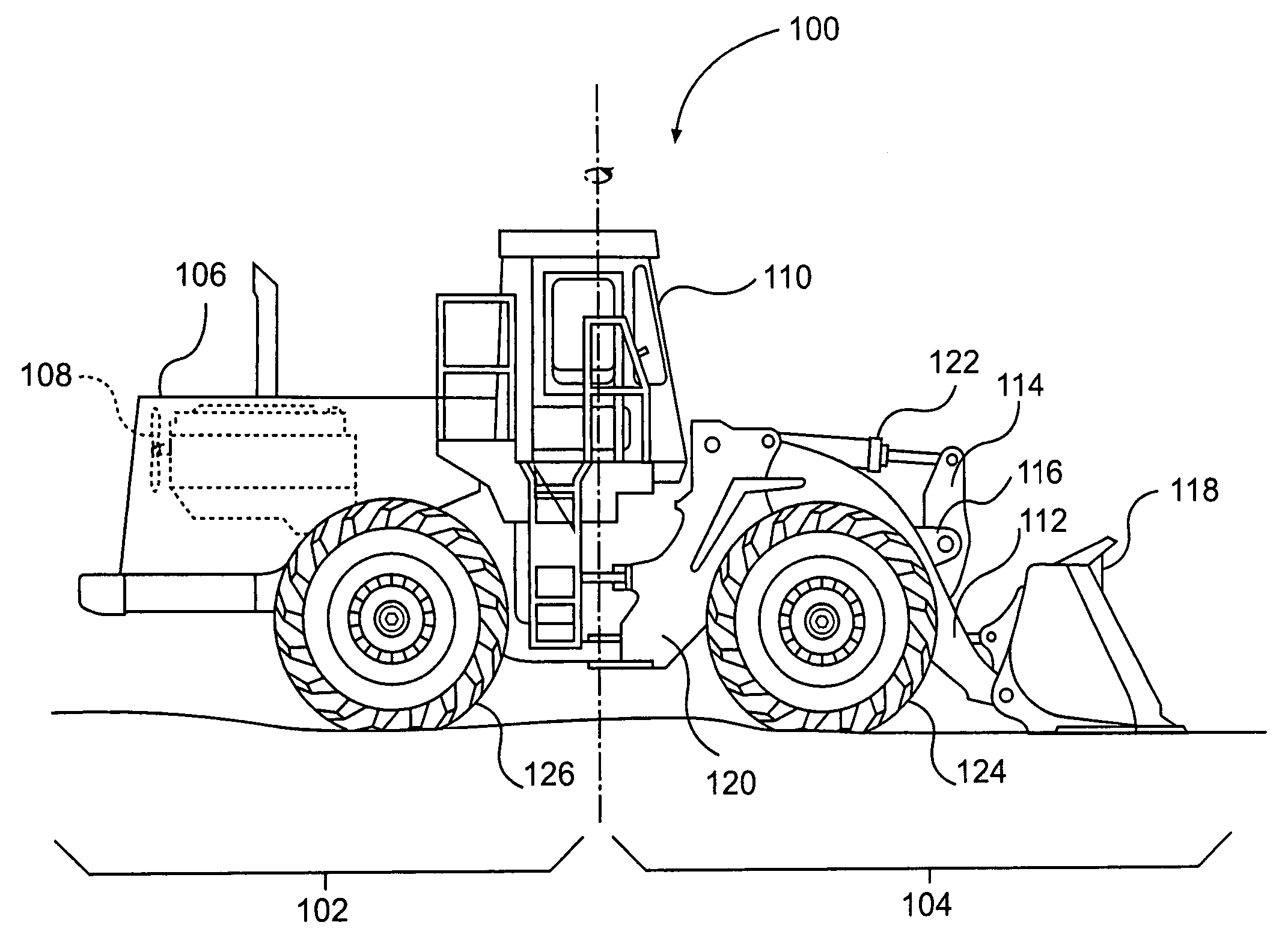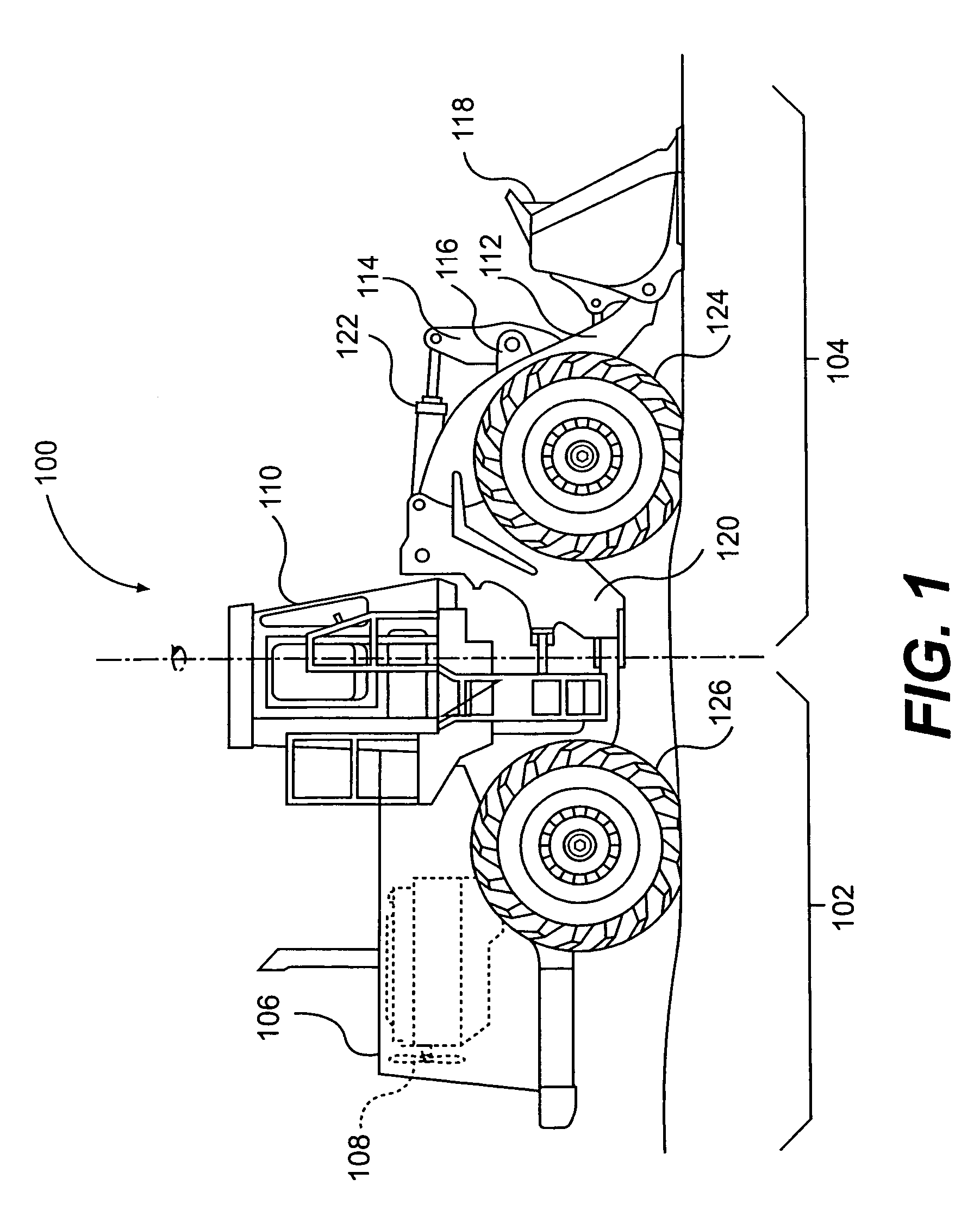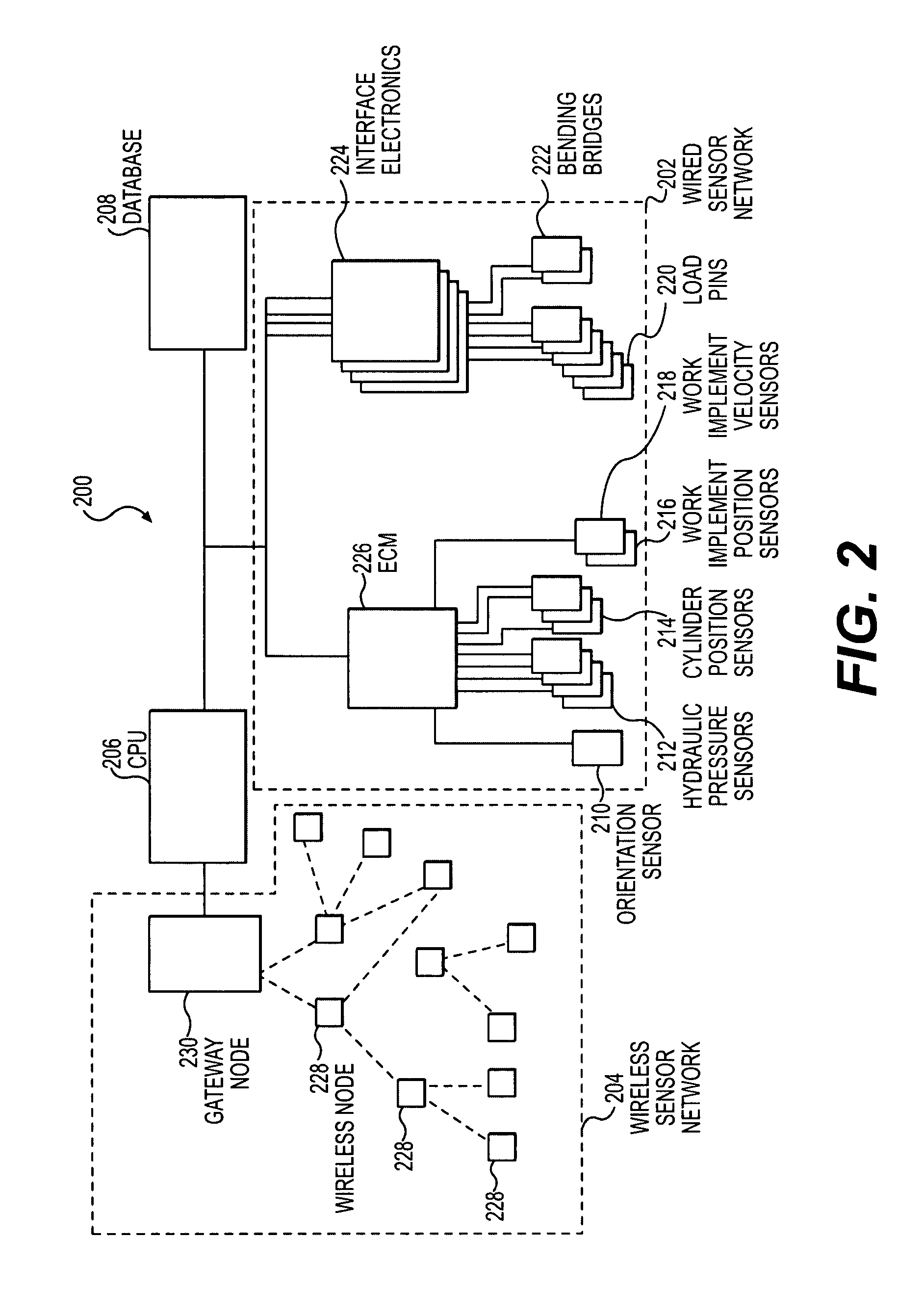Classifying a work machine operation
a work machine and operation technology, applied in the direction of adjusting devices, instruments, nuclear elements, etc., can solve the problems of inability to meet the requirements of inspection
- Summary
- Abstract
- Description
- Claims
- Application Information
AI Technical Summary
Benefits of technology
Problems solved by technology
Method used
Image
Examples
Embodiment Construction
[0027]Reference will now be made in detail to exemplary embodiments and illustrations. Wherever possible, the same reference numbers will be used throughout the drawings to refer to the same or like parts. While specific configurations and arrangements are discussed, it should be understood that this is done for illustrative purposes only.
[0028]Methods and systems consistent with the disclosed embodiments perform processes that determine, among other things, loads, health, and use of a work machine or components of a work machine. In one embodiment, a work machine may be outfitted with a number of sensors. Some of the sensors may measure information reflecting the orientation and movement of the work machine, such as inclination relative to the ground, and the positions of the movable parts of the machine. Other sensors may measure information about forces acting on the work machine. Additional sensors may also measure the strain experienced by certain components of the machine.
[002...
PUM
 Login to View More
Login to View More Abstract
Description
Claims
Application Information
 Login to View More
Login to View More - R&D
- Intellectual Property
- Life Sciences
- Materials
- Tech Scout
- Unparalleled Data Quality
- Higher Quality Content
- 60% Fewer Hallucinations
Browse by: Latest US Patents, China's latest patents, Technical Efficacy Thesaurus, Application Domain, Technology Topic, Popular Technical Reports.
© 2025 PatSnap. All rights reserved.Legal|Privacy policy|Modern Slavery Act Transparency Statement|Sitemap|About US| Contact US: help@patsnap.com



